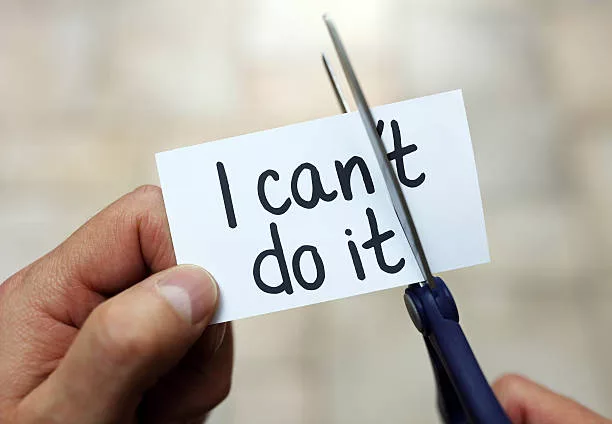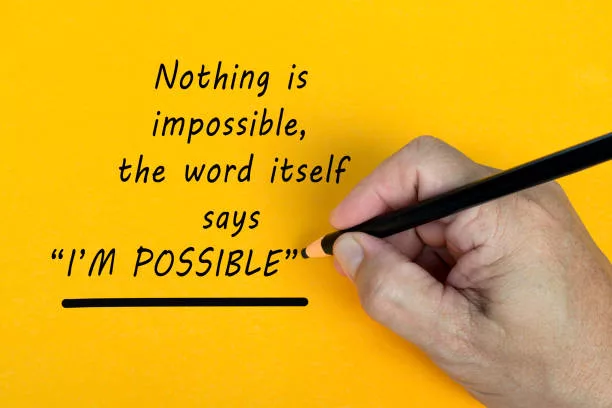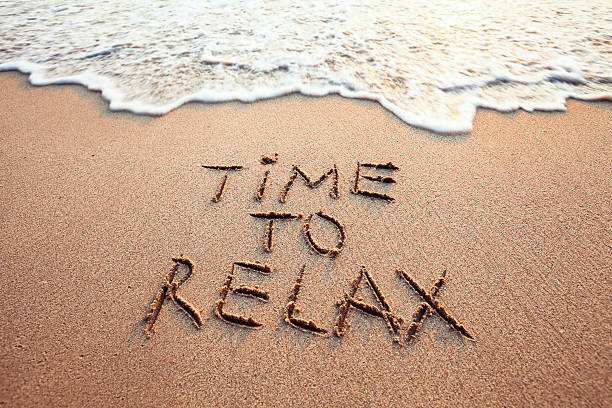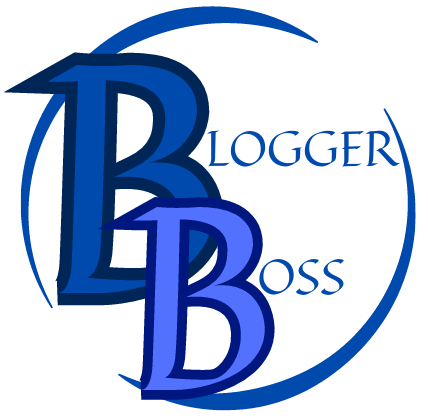How To Work Through Writer’s Block.
You’re staring at a blank page, the cursor blinking mockingly at you. If you’ve been writing for any length of time, you’ve probably encountered writer’s block. But what exactly is it? It’s often painted as just a ‘creative rut,’ but in reality, it’s a much more complex beast. Writer’s block isn’t just about lacking inspiration; it’s a multifaceted issue that can be triggered by various mental, emotional, and situational factors.
I’m going to unravel the psychological underpinnings of writer’s block. You see, it’s not as simple as ‘not having ideas.’ It can stem from fear of failure, anxiety over how your work will be received, or even self-imposed pressure to succeed. Writer’s block can be likened to a mental barrier, preventing you from accessing your own creativity and thought processes.
Interestingly, it’s not just a challenge for new writers. Seasoned authors with multiple publications under their belt can also fall prey to writer’s block. It can strike anyone at any point in their writing journey, making it a universal struggle in the literary world.
As we move into recognizing the signs of writer’s block, keep in mind that this isn’t just about identification, it’s also about understanding. By learning the signals – whether emotional, such as frustration and self-doubt, or cognitive, like a lack of motivation – you can better navigate through the fog of writer’s block and come out on the other side with fresh ideas and renewed energy.
Recognizing the Signs of Writer’s Block

Okay, roll up your sleeves, because it’s time to look at writer’s block under the microscope. This isn’t just about staring blankly at your computer screen; it’s also about the subtle signs that hint at a deeper creativity stall. Writer’s block often sends small distress signals before it really sets in. They might be easy to ignore at first but recognizing them early can help you nip the problem in the bud.
Firstly, let’s talk emotional cues. You might start feeling a sense of frustration or even dread every time you sit down to write. That’s a red flag right there. Lack of motivation can also creep in, and you might find yourself doing literally any chore to avoid writing. When your usual passion feels like a sputtering engine, you’re likely facing the onset of writer’s block.
On the cognitive side, self-doubt often rears its ugly head. If you’re second-guessing every word you type, or if great ideas suddenly seem worthless, that’s another sign you’re blocked. These feelings not only tamper with your mental gears but also sabotage your productivity and creativity. You start to produce less and less, and what does come out feels forced or uninspired. It’s that eerie silence when should be the clacking of keys and the whirl of ideas.
Understanding these signals is the first step. Next, you’re going to find out about arming yourself with prevention strategies. If you want to keep writer’s block at bay or soften its grip when it does take hold, building proactive habits is key. You can always adjust your approach down the road, but establishing a solid base of strategies will help you stay on course. Let’s march forward to the next section, where I’m going to help you put together your writer’s block battle plan.
related article – mastering SEO: what is the best keyword research tool for bloggers?
Hey there, fellow bloggers! Ever felt like you’re playing hide and seek with Google, and you’re always “it”? Well, the key to being found in this giant game of digital hide and seek is top-notch keyword research. And that’s exactly what we’re diving into today: what is the best keyword research tool for… Read More>>

Proactive Strategies to Prevent Writer’s Block
Having a strategy in place is crucial if you want to minimize the chances of hitting a wall with your writing. It’s all about setting yourself up for success and keeping the gears of creativity greased. Here are a few proactive ways to stave off writer’s block before it becomes a roadblock.
A consistent writing routine might sound simple, but it’s surprisingly effective. Setting aside a regular time each day for writing helps train your brain to switch into ‘writing mode’ more easily. You’re going to find out about the importance of consistency over raw bursts of creativity.
Your writing environment plays a big role, too. Choose something that resonates with you. Whether it’s a quiet home office, a bustling coffee shop, or a serene park bench, make sure it’s a space where your mind feels at ease and ready to create.

Let’s not overlook the power of proactive techniques like free writing and brainstorming. These are like warm-up exercises for your mind; they get the creative juices flowing without the pressure of polished writing. You’re focusing on quantity over quality here, just to unlock your thoughts.
Creating an idea bank can also be a game-changer. Whenever you strike upon a potential topic, jot it down. This strategy ensures you always have a backup reservoir of ideas to tap into when you feel stuck.
Lastly, giving yourself permission to write badly can liberate you from the paralyzing quest for perfection. Remember, the first draft is just that—a draft. It doesn’t need to be perfect; it just needs to be written.
related article – how to start a blog in your retirement
How to start a blog in your retirement, you ask? Well, retirement is indeed a time for relaxation, picking up new hobbies, and surprisingly, for blogging too! Absolutely, it’s not… Read More>>

Techniques for Overcoming Writer’s Block in the Moment
You’re staring at the screen, the cursor blinking expectantly, but the words just aren’t flowing. Sound familiar? You’re not alone. Writer’s block often strikes without warning, leaving you feeling like you’ve hit a brick wall. But don’t worry, there are several techniques you can employ to overcome this creative hurdle.
First off, try breaking the task down into small, manageable steps. Instead of thinking about writing an entire chapter, focus on a single paragraph or even a sentence. This approach reduces the pressure and makes the project seem less daunting.

Another handy strategy is to shift your perspective. If you’re writing fiction, jump to a different scene or explore the narrative from another character’s point of view. For non-fiction, tackle a subsection that you find more interesting or look at your topic from a new angle. Sometimes, all it takes to get the words flowing is a fresh look at the material.
Don’t underestimate the power of physical activity to kickstart your brain. A brisk walk, a quick jog, or just a change of scenery can work wonders. Physical movement increases blood flow, including to the parts of the brain involved in creative thinking and problem-solving.
If these tactics aren’t cutting it, remember it’s perfectly okay. Transitioning into the next section, it’s important to consider self-care techniques that can work in conjunction with these strategies to help you get back on the creative track.
The Importance of Self-Care in Combatting Writer’s Block

I’m here to help you with something that’s often overlooked in tackling writer’s block: self-care. This isn’t just about managing your writing; it’s also about managing your well-being. When your mind is fatigued, your creativity usually takes the first hit. That’s why taking regular breaks is vital to sustaining your creative output in the long run.
Don’t worry too much about stepping away from your work-desk. Your brain continues to process problems and generate ideas even when you’re doing something else. Regular breaks can lead to eureka moments when solutions to stubborn writing challenges suddenly crystallize out of nowhere. Choose an activity that helps you relax — whether that’s a walk in the park or jamming out on a guitar. This break isn’t a sign of defeat; it’s a strategic retreat.
Stress management is another critical tool to combat writer’s block. If you want to keep yourself in peak writing condition, incorporate strategies for coping with stress into your daily routine. This could involve physical exercise, which not only improves your mood but enhances your neuroplasticity — the brain’s ability to form new connections and come up with fresh ideas.

You can always adjust your approach down the road but consider starting with meditation or mindfulness practices. They have been shown to foster a conducive headspace for creativity by reducing anxiety and improving focus. Even five minutes a day can make a substantial difference. It may feel odd at first to sit quietly and focus on your breath, but it’s an investment in your mind’s resilience.
Choose something that resonates with you for your self-care regimen. There’s a lot of opportunity in personalized self-care, and what works is as unique as your writing voice. That’s the strategy I like to leverage nurturing, not just my craft, but also my mental and emotional wellbeing.
Seeking External Help: Knowing When to Reach Out

This isn’t just about struggling in solitude; sometimes, the path through writer’s block is a shared one. You might wonder at what point you should ask for help. In my experience, if your strategies aren’t working and your block persists, it’s time to consider reaching out.
Writing groups and online forums can be a goldmine for support. Here, you can gain fresh perspectives on your work and regain your motivation. Sharing experiences with those who understand can make a substantial difference to your outlook and approach.
Professional help, like therapy or coaching, might seem like a big step, but for chronic writer’s block, it can be transformative. A qualified counselor with experience in creative fields can guide you to the root of your block and beyond. Don’t be afraid to take this step; it’s a sign of strength, not weakness.
Remember, choosing the right support depends on your individual needs. Peer groups are great for day-to-day encouragement, while professionals can help with deeper issues. Stay open to different forms of help, and don’t hesitate to combine approaches.
How To Work Through Writer’s Block FAQ’s
Writer’s block can be a frustrating experience for anyone who creates content, whether as a professional or a hobbyist. Understanding its causes and finding effective ways to work through it can help you regain your creativity and productivity. Here are some commonly asked questions and answers to guide you through writer’s block.
What Is the Main Cause of Writer’s Block?

The main cause of writer’s block can vary from person to person, but common contributors include:
Perfectionism: The desire to write perfectly in one go can hinder progress and lead to frustration.
Lack of Ideas: Struggling to find compelling topics or angles can make starting a project difficult.
Stress and Anxiety: External pressures or self-imposed deadlines may cause anxiety that prevents clear thinking.
Burnout: Overworking on creative tasks without sufficient breaks can exhaust your creativity.
Fear of Criticism: Worrying about how your work will be received can paralyze your writing process.
How Do You Get Over Writer’s Block?

Here are a few effective strategies for overcoming writer’s block:
Free Writing: Write continuously for a set period without worrying about structure, grammar, or logic. This helps unleash ideas.
Break the Routine: Take a walk, read a book, or engage in a hobby to refresh your mind and gain new perspectives.
Change the Environment: Write in a new location or rearrange your workspace to stimulate creativity.
Set Small Goals: Write a short paragraph or even a sentence to build momentum.
Seek Feedback: Talk to a trusted friend or colleague about your ideas and receive constructive input to help you move forward.
How Long Does Writers Block Usually Last?

The duration of writer’s block can vary significantly. For some, it may last only a few hours or days, while others might experience it for weeks or even months. The length often depends on the individual’s circumstances, the causes of the block, and the strategies employed to address it. Being patient and employing a variety of methods can help reduce the duration and make the creative process enjoyable again.
By understanding the common causes of writer’s block and implementing these practical strategies, you can restore your creative flow and get back to writing with renewed motivation and inspiration.
How To Work Through Writer’s Block Conclusion
In conclusion, writer’s block may feel like a steep mountain to climb, but you have a variety of tools at your disposal. The key is to keep moving forward, whether that means changing your routine, focusing on self-care, or reaching out for help. Your first attempt doesn’t need to be your last, and seeking assistance is a proactive step, not a surrender. I really hope that you find the method that resonates with you and leads you back to a place of creative flow and fulfillment.
Behind every great endeavor stands a visionary, and Blogger Boss is no exception. Mark, the founder of Blogger Boss, is more than just a figurehead; he’s a mentor, a guide, and a fellow traveler on the road to blogging success. Mark’s philosophy is simple: your success is his success. With years of experience navigating the highs and lows of the blogging world, Mark brings a wealth of knowledge and a genuine passion for teaching to the table.
Through one-on-one coaching sessions, Mark offers personalized advice tailored to your blog’s unique needs and goals. Whether you’re wrestling with technical issues, seeking clarity on your content strategy, or looking for ways to monetize your passion, Mark is there, every step of the way, to ensure your journey is not just fruitful but enjoyable.



